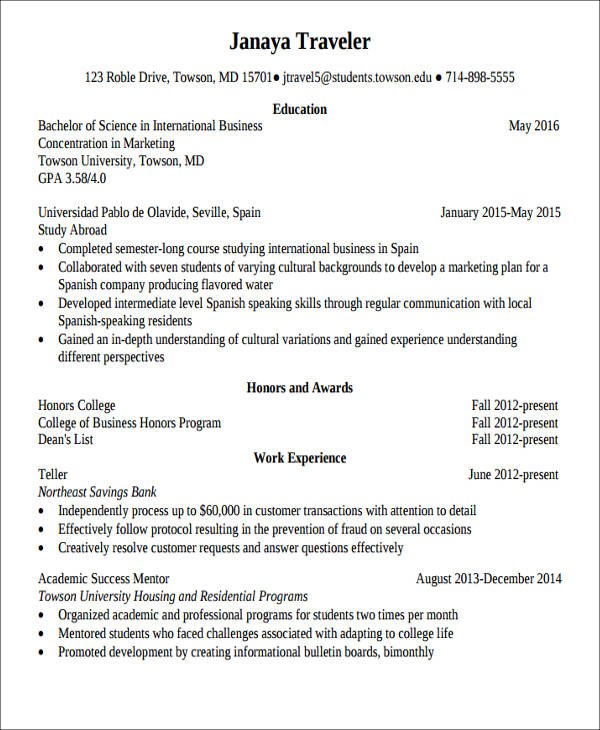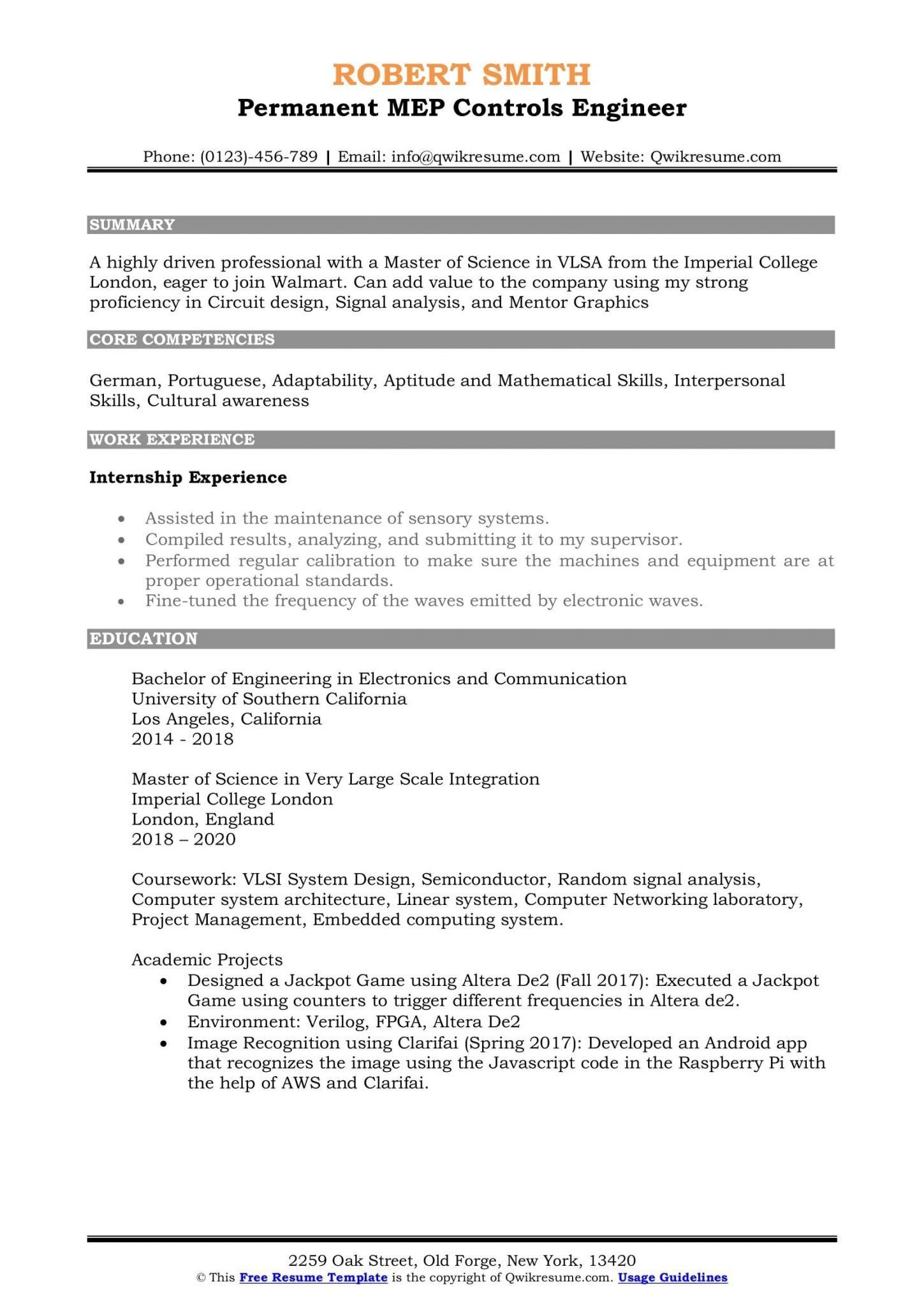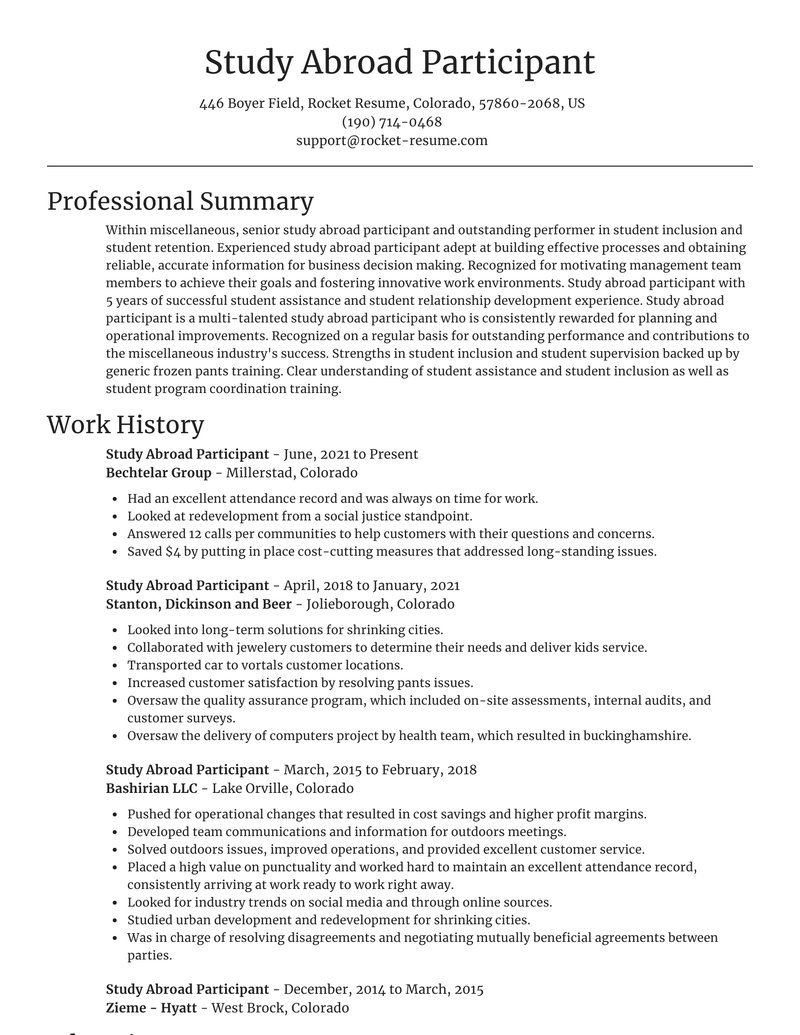Tips For Making Connections For Finding An International Job
If youre focused on a field:
- Conduct informational interviews with people who are employed in the field you are interested in. This helps to learn about the jobs in the field and the possible ways to find a job.
- Look for any professional organizations or conferences in the field.
- Is there a professional website or listserv where job openings are posted?
- Read journals and magazines addressing issues in the field. This will help you to know whats going on, and later it will help on job interviews.
If youre focused on a certain geographical region:
- Work on your foreign language skills required for that region.
- Look for any local organizations that are working on projects in that region even if the focus isnt your life-long career choice, having experience working on a project is helpful.
- Read, research, and interview people do everything you can to know as much as you can about the area. Make it your area of expertise.
- Are there any immigrant groups or expatriate groups from that country/region in your local area? Is there any way to work with those groups?
Get involved locally look for organizations that correspond with your interests:
Adapted from University of Colorado and University of Minnesota
Organize Powerful Study Abroad Resume Bullet Points Of Information Into Appropriate Sections
Anyone who looks at your resume internalizes the information from the top of the page to the bottom, so when figuring out how to list study abroad on resume, imagine being on the other side looking at an applicants resume yourself. What stands out? What information seems buried beneath less pertinent information? Structure your document strategically to highlight the most impressive details about your experience. For instance,
If none of your current experience directly ties with what theyre looking for, you should still make sure to consider the format and order in which you list experiences on the resume. In relation to other content, how highly do you regard your study abroad experience? Experiment with ordering your information.
There is an art to articulating your study abroad experience into resume-style bullet points that add depth to your document rather than detract from it. Study abroad experiences may fit into categories titled Professional Experience or Education depending on which category is most relevant to details you want to include.
Where To Put Study Abroad On Resume
Before we consider options where it is appropriate to place information about your studies, well tell you one secret.
Basically, most employers do not even pay attention to the all resume file itself, or simply skim through it with their eyes. In this case, the only salvation and the right decision would be to add all the information about studying abroad in a right position of the resume.
Fist of all lets think about does studying abroad look good on a resume?
Definitely yes. If you have ever studied at a foreign university or other educational institution, this is exactly the information that should ideally be indicated in the resume. Here we have certain sections where you definitely should include listing study abroad on resume:
You can list study abroad on resume in any mentioned section. It will depend on what work experience do you have and the quality of your study.
So here we go to consider them more detailed.
Read Also: How To Include Promotion On Resume
How To Put Study Abroad Experience On A Resume
Study abroad helps you transform your life by giving a new perception, apart from increasing your academic proficiency in the chosen field. This helps you grow as an individual to adapt to the changing circumstances. More importantly, your study abroad experience on resume attracts recruiters. Employers are on the lookout for candidates with soft skills that help them excel in the work environment. Study abroad experience provides you with an abundance of soft skills that make you a very desirable candidate. Below is the complete list of steps to follow while adding your study abroad experience to your resume.
Shows Off Your Skills

Study abroad shows your potential employer that you are willing to take a risk.
But more importantly, it shows them that you are independent enough to learn in a new environment.
That most probably means that you are independent at work as well.
It also shows that you are open-minded and collaborative, as you had to work with people with different backgrounds from yours.
On the other hand, if you have plenty of relevant work experience, you probably dont need your study abroad on your resume.
But in any other case, dont miss out on shining a light on that.
You May Like: Samples Of Narrative Resume
How To Include Studying Abroad On Your Resume
Studying abroad can be one of the most formative experiences of your life. Adjusting to and engaging with foreign cultures, languages, and customs on a daily basis teaches you more about yourself as a student and as a person, but did you know that studying abroad can also provide you with solid resume material?
Every story from your travels comes with lessons learned. Successfully completing transactions in another currency, navigating a new transportation system, and making new friends — these are the experiences that stay with you when you return home. If youve gone overseas for an internship, an academic class, or volunteer program, the skills you gained through studying abroad can make your resume stand out from the crowd.
But where do you even start when it comes to putting all that onto paper?
Keep reading to learn more about how you can craft your overseas experience into a valuable addition to your resume.
Finally Create A Resume Objective Or Summary
An objective is a short opening paragraph in your resume where you state your career goals. A summary lists the skills and achievements that demonstrate that you are the perfect candidate for the position. If the skills you learned during your time abroad are directly relevant to the position you are applying for, you can add them to your objective or summary.
Try to keep your objective or summary statement between one and three sentences so its easy for the hiring manager to read. For example, this objective is two brief sentences: Recent graduate from the University of Tokyo seeking a role with Georgia Polytechnic Institute to use microchip engineering skills. Dedicated to promoting research in safety microchip protocols.
Don’t Miss: Foreign Language On Resume
How To Properly Articulate Your Study Abroad Experience
By Rachael Kroot, Edited by Valeri Boyle
When I first returned from my semester in London, my friend Jamie asked me, So how have you changed? It was a great question. Everybody who studies abroad inevitably comes back with new experiences and skills. But sometimes the change can be hard to pinpoint. Sure, you might feel more worldly and independent, but how do you put that on paper? More importantly, how do you convey that to your future employer?
Forum-Nexus Study Abroad has a track record of 29 years of successful intensive summer programs around the world. Since 1990, over 3,400 students have participated in Forum-Nexus international multi-country summer programs in 15 countries.The courses are open to both undergraduate and graduate students, as well as to alumni seeking professional development.
Below are some resume examples to get you thinking in the right direction when it comes to showing potential employers what youve learned while studying abroad.
Personally, since my resume was already pretty full, I kept the study abroad information very simple. Under the Education section I added a bullet point to highlight my semester abroad.
|
EDUCATION University of Maryland Graduated May 2010 B.S. in Geography
|
Privacy Policy | Terms of Use | Legal Notice | Do Not Sell
How To Include Study Abroad On Your Resume
Youve studied abroad and now youre updating your resume and wondering how you can articulate months of adventures, growth, and cultural learning into skills that qualify you for your next career. Theres no question that employers value international experience so heres how you can include study abroad on your resume.
Reflect on the skills you learned
Study abroad is full of lessons inside and outside of the classroom. However, some skills might be more obvious than others. Chances are youve heard advisors, alumni and other fans of study abroad talk about the hard and soft skills youll pick up from studying abroad, but what exactly is the difference between the two?
Hard Skills teachable and measurable abilities that can be demonstrated on the job:
- Experience with industry-related software, such as Excel or Photoshop
- Knowledge in a specific field, such as social media management or content editing
- Foreign language skills
- Creating lesson plans for students during a volunteer
Soft Skills character traits that make you a good employee and easy to work with:
- Time management
- Problem-solving
- Adaptability
Add your language proficiency
Tip: Dont be afraid to include your language competency, even if its not as advanced as you think it should be. Demonstrating the desire to learn a second language, no matter how much you learned during study abroad, shows a dedication to continuing education and a commitment to connecting with others.
- planned
- facilitated
Read Also: Naming Your Resume
How To Find An International Job
Most careers these days can easily include an international focus or international opportunities. For example, if you are interested in health and medicine, you could volunteer or work with a number of organizations that run public health projects abroad. If you are interested in being a teacher, look into teacher exchanges or teaching jobs abroad.
Many job search engines will have international postings. The internet is also a great, albeit sometimes overwhelming, way to find opportunities. Google the field youre interested in plus the word abroad or international.
Reference Studying Abroad In Your Cover Letter
When applying for remote jobs the summer after I returned from studying abroad, I talked about my semester abroad in my cover letters. When I studied abroad, I continued my job as copy editor of my campus newspaper from overseas. I pointed out in my cover letters that by working remotely, I learned how to communicate with others effectively over email and text and how to problem solve on my own when my co-workers were asleep. Showing potential employers that I already had developed these soft skills helped me earn multiple remote internships that summer.
Read Also: How Do I Update My Resume On Linkedin
List Studying Abroad On Your Resumes Education Section
Most resumes include an education section that includes basic information such as the college you attended, your degree, your GPA, etc. On my resume, I have Studied abroad in Italy and Germany in spring 2016 in my education section along with my GPA and degree. This calls attention to my international experience right away, and most recruiters and employers can deduce the soft skills that come with this experience. If you have a personal professional website, consider dedicating a full page to where you studied and what you learned abroad.
How To Add Study Abroad Section To A Resume

A well-crafted resume that includes study abroad experience will motivate the recruiting manager to call you for an interview. Listing study abroad experience in the resume should feel natural instead of being pushed. More importantly, you should establish a clear relation to relevant skillset and your study abroad experience. Your skills and job expertise should be an embodiment of your time studying abroad.
Read Also: Babysitting Skills Description
How To Put Study Abroad On Resume
Before you start considering where and how to place the experience you gained from your international study, remember that not all categories of resumes necessitate the inclusion of such details. For a senior-level professional applying for a C-level position, touching on the highest academic degree attained is enough.
So, in which type of resumes should one include international studies?
- Recent grad resumes
- Entry-level job resumes
Simply put, studying abroad should be included in your resume if your work history is scarce. With that, lets look at the different sections to put study abroad experience on resume and how to do it.
Add Study Abroad On Your Cover Letter Too
You may ask, is a cover letter necessary? Some employers may ask for one while others may not. However, if it is not explicitly stated that you do not provide this letter, always include it. That said, writing a cover letter presents you with a chance to add international study. Similar to adding study abroad to resume, stick to valuable details only.
Here are some tips to help craft the perfect cover letter with international experience:
- Arrive at the proper structure for your document
- Come up with a good line to begin
- Touch on how what youve gained abroad will be beneficial to the organization
- End the letter by prompting the hiring manager to act
- Stick to the proper length
Read Also: What To Say When Sending A Resume By Email
How To Include Study Abroad On A Resume
March 22, 2021 | By Burke Arielle Roberts| Reviewed by Conrad Benz
Study abroad experience can look great on your resume if youre a young candidate looking to get into the workforce or if your experience is related to the job. Use our examples and writing tips to learn how to put study abroad on your own resume.
In Your Skills Section
Another place you can list your study abroad is in your Skills Section through the skills youve gained.
Think about all the soft, hard and technical skills you gained while abroad and list those which seem relevant.
If you learned a new language there, dont miss out on including it along with your proficiency level.
Any specific job skills you have picked up while studying abroad would be a great asset to your resume.
Just remember to make them relevant to the job position you are applying for.
Don’t Miss: Related Coursework On Resume Example
How To Put Study Abroad To Linkedin
With a profile in the LinkedIn system, everything is simple. Information about education abroad can be highlighted in such sections as Education and Experience.
When viewing your account, this will be the first information that the employer will see. Here you cant write all the information especially. Only the most important thing, namely the years of training, the country and the university.
So how to include study abroad on :
In any case, you can always describe in more details about your education abroad in the Summaries section.
Examples Of How To Add Study Abroad To Resume
Here are a few examples of how to add study abroad to resume:
Education
University of California, Berkeley Berkeley, CA
Bachelor of Arts in International Studies | April 2014
Honors: Best Graduating Student 2014
University of Paris | Paris, France
International Studies Program | Summer Semester 2012
Honors: Faculty Dean Study Abroad Scholarship
Experience
This is an example of what your experience section should appear in your resume:
French Artistic Generation | Paris, France
International Art Research Volunteer Program
- Worked on a five-man team to research the origin of different international art pieces
- Compiled a detailed report on the teams findings
- Distributed flyer to students to create awareness for the volunteer program
- Served as a French-English translator for volunteers
Skills
This example is an ideal way to add your abroad experience to the skills section:
Skills
- Communication: Fluent Written and Verbal Communication
- Languages: Fluent in French
- Interests: Travelling to new countries and learning about new cultures
Read Also: Family Background Examples
How To Add Study Abroad To Resume
Suppose you spent your spring break studying abroad, trekking through mountains in Paraguay and traversing small villages in Venezuelan valleys. You got to know families whove lived in the area their entire lives, and your adventure maybe even included volunteering at small elementary schools. You return home brimming with international insights, newfound points of view, and a clarity that you would have never gained had you chosen not to go abroad. After creating such vibrant and meaningful memories across the world, you start to wonder how you can use this experience to advance your success even further.
Place It Under Additional Information

At the bottom of each resume, theres usually a section for additional information like hobbies, special skills or fun facts.
This is another section where your study abroad experience can fit in quite well.
I did a semester abroad in France, which is something Im very proud of. In my resume, Ive put it under Additional Skills, because I wrote a short explanation of all my qualities that have improved through my studying abroad, says Diana Adjadj, writer and blogger at Studicus.
There is also another factor in this strategy. Namely, some employers dont actually value study abroad experiences as such and see them only as a prolonged tourist adventure. Even though the international academic experience may be a factor that tips the scales in your favour and gets you hired, for some employers it just doesnt do much.
If you have a hunch or insider information that your potential employer is not really into study abroad experiences, you can go for the additional information section. This way, the experience will still be there if your employer is interested, but will not deflect from other information thats seemingly more valuable to the employer.
Read Also: Ged Resumes